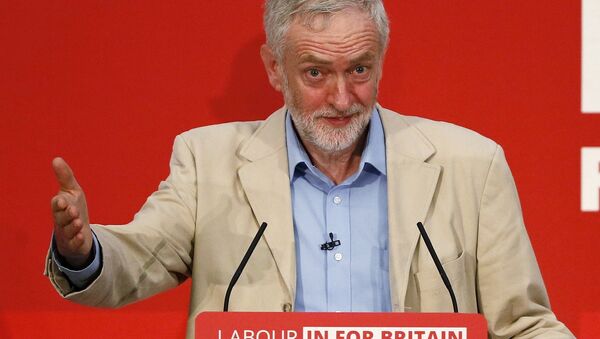Corbyn's rise was triggered following Labour's defeat at the 2015 general election, allowing the Conservatives, under David Cameron to take power, albeit with a slim majority. The former Labour leader Ed Miliband stood down, paving the way for a leadership race.
Ballots for #LabourLeadership start to arrive by email today. Under our leadership no community will be left behindhttps://t.co/5XPTimnwD8
— Jeremy Corbyn MP (@jeremycorbyn) August 22, 2016
There were three frontrunners: Andy Burnham, former health spokesman, Yvette Cooper, shadow home secretary and Liz Kendall, shadow minister for care and older people. Then, left-wing firebrand Corbyn joined the race and was seen as a dark horse.
However, because of the voting system, a huge number of people joined the party as supporters and were able to cast a vote. Corbyn won by a landslide — supported by many left-wingers and the unions, who were tired of the party's move to the center ground under Tony Blair and Gordon Brown.
However, he did not enjoy the support of the majority of the Labour members of parliament. They were angered by Corbyn's lackluster support, during the In-Our referendum on the UK's membership of the EU, for remaining in Europe. He is known to be anti-EU, but towed the party's line, which was to remain.
When the result came through that 52 percent backed leaving the EU, his parliamentary colleagues turned on him and held a vote of no confidence in him, which was won by 172 votes to 40. Corbyn has refused to move, however, saying he has a mandate from the 2015 leadership election, with the backing of grassroots party members and the unions.
Got a question for our leadership candidates? Submit yours for an upcoming debate → https://t.co/DlPC1GP681 pic.twitter.com/v6GFwUVXS1
— The Labour Party (@UKLabour) August 21, 2016
Split Party
With a standoff between the majority of Labour lawmakers and their leader, there was a further rush to join the party in order to secure a vote. Labour's National Executive Committee (NEC) ruled that only those who had held continuous membership for six months could vote. That was challenged in the High Court, which ruled against the NEC only to be overturned by the Court of Appeal.
It is believed Corbyn will gain most from the huge increase in membership since he was elected last time, although a good number of young voters may take against him because of his poor campaigning on Brexit (most young voters wanted to remain in the EU).
Fantastic to have @kezdugdale's support, a brilliant leader and our most senior elected women. Read her piece here: https://t.co/7VAl2PpINJ
— Owen Smith (@OwenSmith_MP) August 22, 2016
The stage is now set for a standoff between the parliamentary Labour Party — who say they have an election mandate — and Corbyn — who says he has a popular mandate among the wider membership. There are rumors that if Corbyn gets re-elected, the parliamentary Party may form a party-thin-a-party and call on the speaker of the House of Commons to permit them to the official opposition, instead of the Corbyn set.



